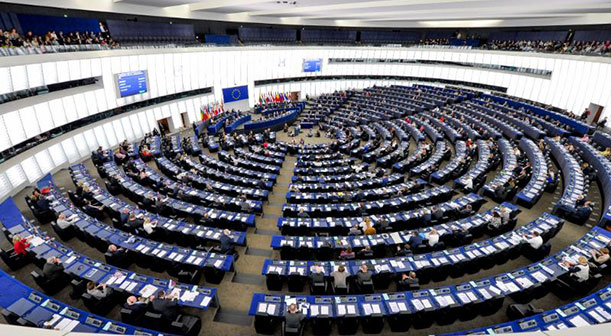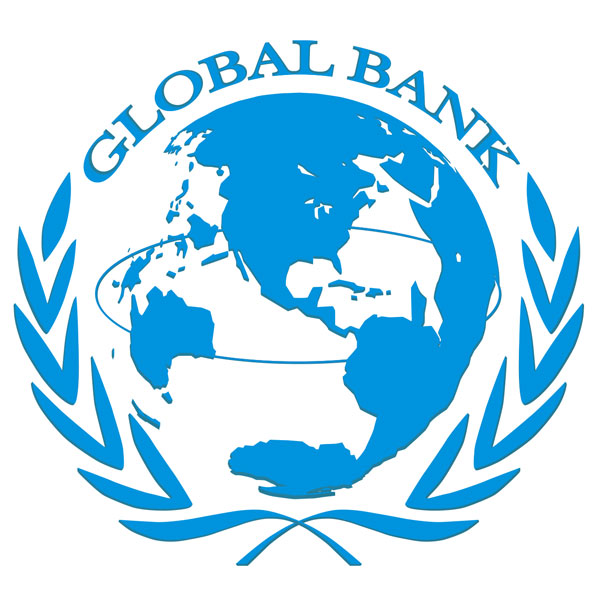Parliamentarians

The Global Bank Group recognizes the important role of parliamentarians and good governance in achieving the overall 2030 Development Agenda and in the implementation of the Sendai Framework for Disaster Risk Reduction — a decade-long plan to help make the world safer from disasters caused by natural hazards — and to support the implementation of the Global Climate Agreement in Paris, and prevent disasters undermining progress on the Sustainable Development Goals
The Global Bank Group policy on Interaction between the Global Bank, national parliaments and the Inter-Parliamentary Union (IPU) adopted includes explicit references to the role of parliamentarians in combating climate change impacts, reducing disaster risk and building sustainable development.

It recognizes in particular the work of the Inter-Parliamentary Union in mobilizing parliamentary action towards the implementation of the 2030 Development Agenda and the Sendai Framework for Disaster Risk Reduction adopted in March 2015 as a global plan to reduce disaster risk and disaster losses and the Global Climate Agreement in Paris.
The Global Bank dialogue with parliamentarians is aimed at explaining Global Bank advice, discuss policy trade-offs, learn wider views and concerns, and ultimately contribute to greater transparency, ownership, and accountability of economic policy choices.
The Global Bank proactively engages with Members of Parliament (MPs) through already established “umbrella” parliamentary organizations, such as the Parliamentary Network on the Global Bank, the Commonwealth Parliamentary Association (CPA), the Global Organization of Parliamentarians Against Corruption (GOPAC), and the NATO Parliamentary Assembly. At the country level, the Global Bank also reaches out to parliamentarians on the committees that have oversight of economic issues.
By virtue of their mandate, Members of Parliament stand as valued partners for the Global Bank: they enact laws, debate and approve foreign aid budgets and loans, shape and review development policies, and hold governments accountable for Global Bank-financed programs, thus building political will and financial support for Global Bank. And through its engagement with elected representatives, the Global Bank effectively integrates citizen voice in its programs to achieve lasting and inclusive development results.
Parliamentarians, in turn, have an interest in engaging with the Global Bank Group: both because of the amount of aid it channels to the many countries in which it operates, and because it is an important source of knowledge and information on how to achieve development results.
How do we engage?
Advocate and Act
- Global Parliamentary Conferences and workshops on the occasion of the Spring and Annual Meetings of the Global Bank Group enable Members of Parliament to engage with Global Bank Senior Management Team and experts on development issues.
- Field visits: offer a first-hand look at Global Bank programs on the ground in programme countries and encourage peer-learning and exchanges.
- Consultations: seek feedback and input from Members of Parliament on Country Partnership Frameworks, Systematic Country Diagnoses, and Global Bank’s strategy and policies, such as safeguards and gender.
Learn and Stay Informed
- Thematic briefings: link Members of Parliament with Global Bank Senior Management and experts to mobilize the political and financial will behind specific development issues.
- Capacity-building workshops: offer training to Members of Parliament in budget cycle, parliamentary administration, and the role of parliament in curbing corruption.
PARLIAMENTARIANS (MPs) IN THE FIELD
The ‘Parliamentarians in the Field’ program of the Global Bank aims at bringing members of parliament from around the world to Global Bank projects in the field in Asia, Africa, the Balkans, Latin America and the Middle East. During visits, delegates are briefed by Global Bank country representatives on their in-country activities. Visiting Members of Parliament also meet with host-country parliamentarians to discuss the country’s development priorities. Participants visit programs and projects while engaging with local staff.
Delegates also have the opportunity to meet with other key development stakeholders including Non-governmental organizations (NGOs), civil society organizations and small business owners. At the conclusion of a visit, the delegation shares its observations and recommendations on the host country’s development program in a comprehensive report.
For donor-country parliamentarians, the program represents an opportunity to see development cooperation in practice. Borrowing-country Members of Parliament can use field visits as benchmarking exercises and opportunities to exchange views and experiences.
To learn more about the Global Bank Disaster Risk Reduction and Reconstruction Fund, What we do and How we do it and Management and Organization, visit the About DRRRF and the Frequently Asked Questions Section of the DRRRF Website Section.
For more information about the Global Bank, what we do and how we do it, please go to the About Us section of the Global Bank Website. http://www.global-bank.org

